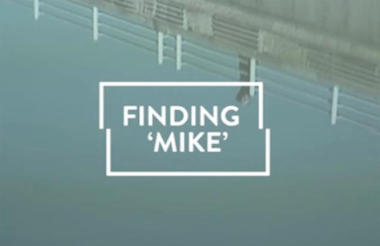Earlier this week, at an event organised by the Showcase of Fundraising Innovation and Inspiration, some of the sector's leading fundraisers highlighted the campaigns they most admired. Emily Corfe rounds up the best.
Punchy words and raw human stories were the theme of the day at Sofii’s I Wish I’d Thought of That conference, in which 19 speakers were given the chance to talk for seven minutes on a fundraising campaign they wished they had thought of.
We watched tear-jerking video campaigns, breathed through straws to get a first-hand perspective of asthma and heard some effing and blinding courtesy of the charity Fuck Cancer.
Campaigns started by the public were a hit of the day – the Ice Bucket Challenge (highlighted by Beth Thoren, director of fundraising and communications for the RSPB), the No Makeup Selfie (highlighted by Catherine Cottrell, deputy executive director, fundraising of Unicef UK) and Norwegian Cancer Society’s Cold Water Challenge – in which people jumped into the cold sea (highlighted by Kathy Abrahams, director of engagement and income generation for Breakthrough Breast Cancer). In each case, social media provided the marketing tool and the fact that very few people mentioned the charity or donating made very little difference to the overall fundraising success.
Targeted campaigns were another popular choice for speakers. The charity Fuck Cancer purposefully alienated large swathes of people with its choice words, but attracted a youthful crowd of followers on social media. According to Rob Woods, fundraising trainer and coach for Bright Spot Fundraising, the punchy use of language successfully introduced a new demographic to the cancer cause – one that was largely ignored by the larger cancer charities.
We also heard about Cancer Research UK’s Dryathalon campaign from Sinead Chapman, strategy director for Open Fundraising. Inspired by the success of “Movember”, creators of the campaign cited research that “men are willing to support charity as long as there is low involvement, personal benefit, and it facilitates banter with friends”. The campaign was advertised in lads' mags and attracted a huge number of 25-45-year-old men – another previously under-utilised target group. The campaign raised £10m.
Raw emotive campaigns were another hit of the conference. Chris Barraclough, creative director of Orchestra, spoke of the 1966 docudrama, Cathy Come Home, which was the first of its kind to bypass academic papers on homelessness and cut straight to the human story – inspiring the growth of several leading charities.
Fiona Lishman head of client development for On Agency chose the Find Mike campaign by Rethink Mental Illness. The key to its success, she said, was pinning the cause to one man’s personal story. It was followed by the equally lucrative “Found Mike” and “My Mike” campaigns – and led Lishman to glory after winning the ‘speaker of the day’ award, as voted for by the Sofii audience.









